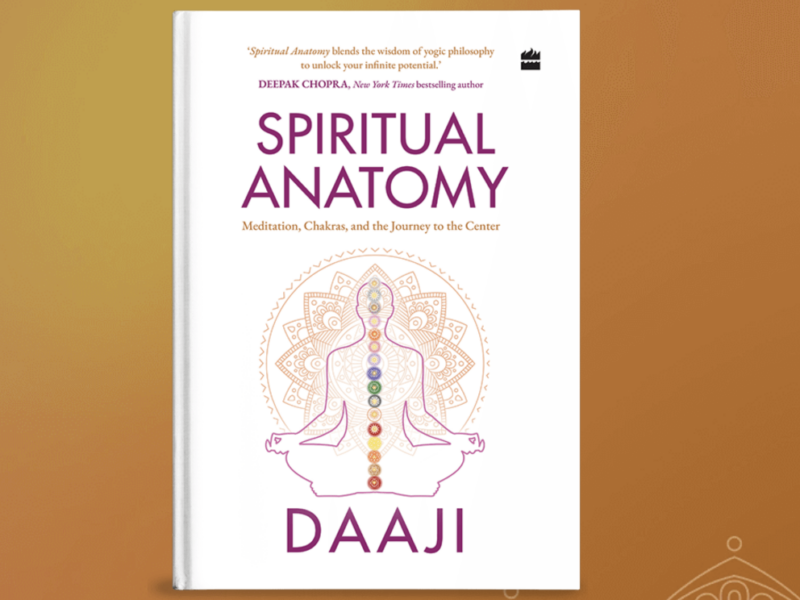Our method for escaping the present moment is shared, societal, and considered a reasonable way of living. In this excerpt from her new book, psychotherapist Nancy Colier offers tips for mindful unplugging and staying present.

Are you in denial about your tech addiction? In this excerpt from The Power of Off, psychotherapist Nancy Colier dissects society’s problem with our digital drug and offers tips for mindful detoxing.
For as long as humans have been on the planet, they have invented methods to escape the moment, devising all sorts of behaviors to check out and disappear from now. It seems we are wired to get out of experiences that we don’t want to be in. To some degree, it is an adaptive behavior: we move away from what feels bad and could potentially hurt us. And yet, some avoidant behaviors are not good for us and do not serve our growth or happiness. While they allow us to escape from what might feel momentarily uncomfortable, such behaviors keep us limited and stuck in habitual patterns that impede our greater well-being.
What’s different now, in the age of technology, is profound and profoundly alarming: our method for escaping the present moment is shared, societal, and considered a reasonable way of living. The new way out of now is accepted as the new now and not a way out of anything. Being on technology all the time is the new norm.
How Addiction to Technology Disconnects
Part of the problem is that we do not believe we are using technology as an escape. We do this by singing technology’s praises. How can anything that offers so many learning opportunities and connects us with so many other people be considered a method of escape?
And yet, as is true with all addictions, such praise is also a justification so that we can continue using. Behaviors can be mindful or addictive. A glass of wine is a delight to our senses; a bottle of it makes us vomit. Books are an adventure and an education, but they become a flight out of here when we use them to hide from the people in our house. Sex can be used to create love, intimacy, and pleasure, but it serves different purposes when we are getting into bed with our fourth stranger of the week.
Technology can be used for positive functions, and many exist, but we are also, and with increasing frequency, using it as we would any other addictive behavior or substance — to get away from what we don’t want to feel or what we fear we might experience. In a cultural collusion, we lie to ourselves and one another, agreeing that this is not how we are using technology. We are a society in denial, digitally drunk, and as a result we are unable or unwilling to look at the truth of our own behavior with our new drug of choice.
Out of all the escape strategies, all the anesthetizing agents that humanity has invented over time, technology may prove to be the most difficult one from which to wake up.
To break free from our addictive use of technology, we must first realize and acknowledge to ourselves that we are using it as a means to escape the present moment and using it without awareness. The way addicts use their drugs of choice is the way we normal folks use technology. While our denial story is convincing for those under the influence — that we can function well, go to work, conduct relationships, and do all the things regular people do — in truth, we are not functioning at the level we think we are when we are chronically multitasking, and we are not taking care of our relationships with the care that we tell ourselves we are.
Although our drug comes with sleek and sparkly packaging, shiny Genius Bars filled with other users to hang out with, and, most importantly, membership in the “normal” club, still, like all other substances, our drug will destroy our awareness and render us unconscious.
How to Start a Digital Detox
So what can we do to recover? How can we become free and in control of our relationship with technology? How can we make conscious choices about how we use it and include it in our lives?
First, we need to be willing to acknowledge that something is not working in our relationship with technology.
Then we need to notice and personally take responsibility for our use of technology. The awareness of our craving to escape the moment is not a sociological concept to ponder, not a cultural study to consider, not about what “them addicts out there should do.” Rather, awareness is a practice that we actively initiate by paying attention to how we are interacting with technology from moment to moment, starting now. We can do this only if we are willing to look honestly at our personal behavior and the consequences that stem from it.
Self-awareness requires mindfulness, that is, the ability to pay attention without judgment to whatever is arising in our experience right now. Mindfulness is a skill we need to develop — one that we cannot omit from our digital wheelhouse. We can start practicing mindfulness by simply noticing the impulse to get on technology whenever it arises and use that awareness to become conscious of our desire to escape the moment. We can then pause in this desire to use.
We can learn to tolerate the feelings of craving, staying conscious and still, allowing it without reacting and without giving in to what our mind is telling us to do to satisfy it: Click on that app. It will help me feel better! We can experience the desire to click, check, play, text, wiki, Facebook, Instagram, YouTube, you name it, but without actually doing anything about it. We tune in to what the mind is whispering (or perhaps shouting) at us even as we remain still, without assuming that the mind’s suggestions and demands are in our best interest. We examine whether we — that is, the larger awareness in us that knows how technology can make us feel — in fact agree with this aspect of mind and want to follow its direction.
The next time you want to use, ask yourself:
Can I refrain? If I don’t use, what then will I have to feel?
In the moment of wanting to use, ask yourself:
What is happening right here, right now, inside me and outside me? What’s arising that makes me want to distract myself?
Notice what comes in response to these questions, in feelings, words, and behavior.
In the end, the liberation, peace, power, and confidence that come from breaking free from any addiction feels so much better than anything technology could ever offer us. It is profoundly empowering to know that we can trust ourselves, control our own behavior, and thus ultimately take care of ourselves. It is in our power to award the reins to our true master — our deeper wisdom, integrity, and intelligence. Whether we exercise this power will determine what kinds of lives we live within this digital world.
Adapted from The Power of Off: The Mindful Way to Stay Sane in a Virtual World by Nancy Colier. Copyright © 2016 by Nancy Colier. To be published in November 2016 by Sounds True.
About the Author
Nancy Colier is a psychotherapist, interfaith minister, author, and veteran meditator. She is the author of Inviting a Monkey to Tea: Befriending Your Mind, Discovering Lasting Contentment (Hohm Press, 2012), and her new book The Power of Off: The Mindful Way to Stay Sane in a Virtual World (Sounds True, November 2016). She lives in New York City. For more, visit nancycolier.com.






